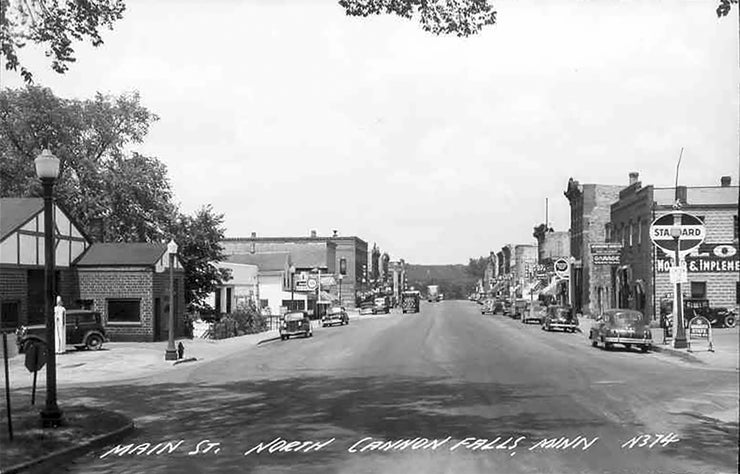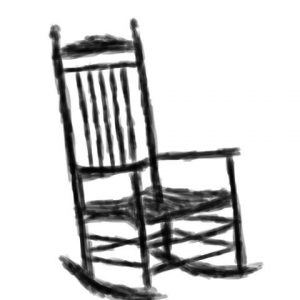Localism without Fundamentalism
Adam Smith at Front Porch Republic


These summers were long ago, so long ago that cigarettes were given to high school students by cigarette companies as a way to get them started and hooked; so long ago nobody had televisions and there were shows on the radio to listen to in the nights, back when portable radios cost an arm and a leg and took close to four pounds of batteries just to keep the tubes going for an hour and a half; and African-American people were kept from voting in the South and other places and did not have schools they could attend except for shacks. So very long ago that a teacher could – and often did – take a hardwood cane to a wiseass student (it made welts that last a week), and there were dress codes and curfews and tent revival meetings in the middle of town, and almost no drugs except what doctors prescribed and not a glimmer of the horror of AIDS, and all the streams and lakes in the north had not been fished out by greedy people.
That’s Gary Paulson, of Hatchet fame, writing about his boyhood in northern Minnesota. Paulson was born in 1939, so the summers in question would have been in the forties and fifties. The list strikes me. First, there’s a bad thing (cigarette companies); then there’s a good thing (no TVs), an inconvenient thing (four pounds of batteries); another bad thing (segregation); some debatable things (dress codes and curfews and revival meetings); a good thing (no drugs); and another good thing (streams full of fish).
The list strikes me because it sounds like exactly the right way to think about the past. A lot of localists like thinking about the past, not least because they think the past was more local, and therefore better. Now, anybody who likes thinking about the past faces one of two temptations, and it’s obvious what they are. The first is to see the bad things but not the good things, while the second is to see the good things but not the bad things. We might say that progressives are more prone to the first, while conservatives are more prone to the second. And it seems equally obvious that the right way is instead to take the past for what it is, as a mixed bag, and to keep that list whole in our minds. Thomas Jefferson is said to have made his own Bible by cutting out all the parts he didn’t like. (That’s right: it was a Hole-y Bible.) This is exactly what we shouldn’t do with the past, which isn’t exactly holy, but does need to be kept whole.
Localists don’t have to be nostalgic conservatives, but they often are, for the simple reason mentioned above. That people in the past lived more locally seems pretty indisputable, at least as a generalization. But we ought to think in more detail about whether and in what ways those more local lives were also better lives. Wendell Berry frequently insists on “a full accounting.” Most “progress,” he points out, seems like progress only when we leave out the costs. Surely the same must be true of the past. The past will always look better than the present to a critic of progress, because the past is where the latest costs of progress haven’t yet been felt. Well, the past needs a full accounting too. Localists, who rightly look to the past because it was more local, need not and should not look past the bad parts of those more local lives in order to show that smaller is better. If we cut the past up and use the parts we keep to win arguments, we end up with arguments full of holes. We either hold the past together, or our politics falls apart.
For example, I’ve recently noticed among my more conservative students a growing impulse to redeem that first item on Paulson’s list and Make Smoking Great Again (if you will). Now, few people despise the public health Machine more than I do. You’ll be hard-pressed to find a more sympathetic audience for youthful rebellions against the Nanny State, lamentations for lost arts and rituals, polemics against hygenicist perfectionism and the cult of medicalized health, and appreciations of all the ways in which smoking together helped build good relations between strangers and friends alike. I’m fully prepared to believe that “We used terrible science to justify smoking bans,” and that smoking bans had their downsides. But I’m not prepared to believe that it was therefore good for Philip Morris to hand out cigarettes to high school students. We have to be able to hold all the different true things together in our minds. Otherwise, we’ll just keep running back and forth between the CDC, which wants to protect us from Philip Morris, and Philip Morris, which wants to liberate us from the CDC. Just because the kids who had cigarettes didn’t have televisions doesn’t mean it was good that they had cigarettes.
I want a localism that sets itself squarely against nostalgia. There are all kinds of bad things in the past, even in parts of the past that often prompt localists to feel particularly nostalgic. We recently finished reading the Little House on the Prairie books to our kids. It’s just the sort of story that often resonates with localists of the FPR type, and there are obvious reasons for that. You don’t get much more local than the little house and the little town in the middle of nowhere. It’s a whole sensibility: Ma baking bread, horses pulling wagons, sunsets on the snow, Pa playing fiddle in the evenings, self-reliance and neighborliness. And we read the story to our kids because we love that sensibility and want them to catch it early. But there are also things in Little House that we wouldn’t want them to catch.
Read the rest





